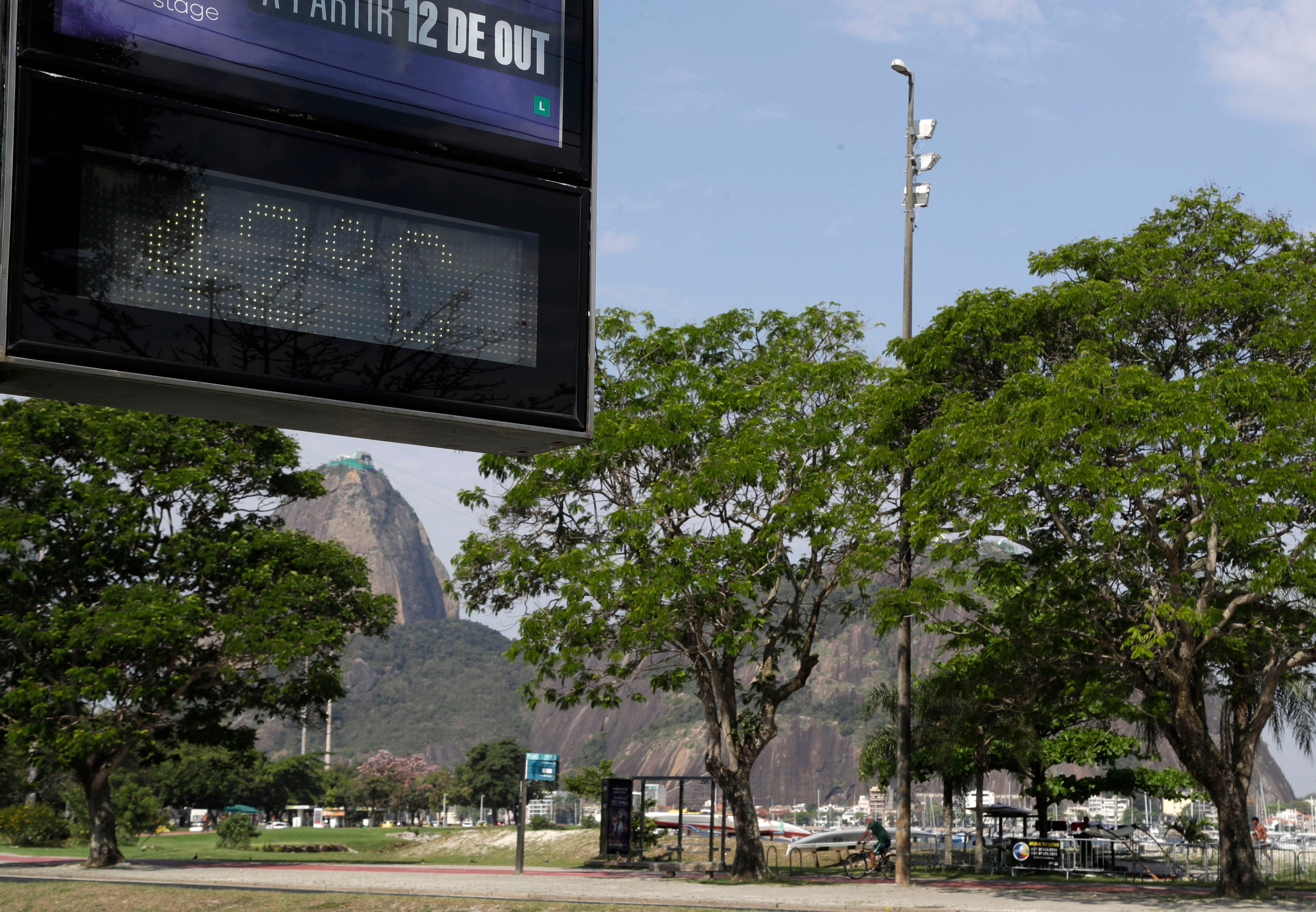Temperatures hit 41C in Brazil amid freak winter heatwave gripping South America
Rare heatwave engulfs 19 of Brazil’s 26 states as several South American countries experience record highs

Your support helps us to tell the story
From reproductive rights to climate change to Big Tech, The Independent is on the ground when the story is developing. Whether it's investigating the financials of Elon Musk's pro-Trump PAC or producing our latest documentary, 'The A Word', which shines a light on the American women fighting for reproductive rights, we know how important it is to parse out the facts from the messaging.
At such a critical moment in US history, we need reporters on the ground. Your donation allows us to keep sending journalists to speak to both sides of the story.
The Independent is trusted by Americans across the entire political spectrum. And unlike many other quality news outlets, we choose not to lock Americans out of our reporting and analysis with paywalls. We believe quality journalism should be available to everyone, paid for by those who can afford it.
Your support makes all the difference.Temperatures in parts of Brazil have gone up to more than 41C this week as South America was hit by unusually hot weather in the middle of the winter.
Four state capitals in the country recorded the year’s highest temperature on Wednesday, while in Cuiabá, in central-western Brazil, the highs reached 41.8C (107.2F).
The rare winter heatwave engulfed 19 of Brazil’s 26 states on Thursday, as well as the capital of Brasilia, according to the National Meteorological Institute.
Residents in Rio de Janeiro and São Paulo, Brazil’s two most populous cities, were also hit by the heatwave. In Rio, temperatures reached 38.7C (101.7F) on Thursday – the city’s second hottest day of 2023.
Authorities said the northeastern states of Bahia and Piauí saw the air humidity drop below 20 per cent, with the government recommending people avoid physical activities and stay indoors during the hottest times of the day.
Last month, Brazil experienced its hottest July since official measurements began in 1961, reflecting a global record, with the average temperature measuring 23C (73.4F), in weeks when the southern hemisphere is supposed to be experiencing its coldest temperatures.
The extreme heat records are being broken or matched by other Latin American countries as well, with Bolivia matching the record of the highest temperature ever recorded in winter in South America, as the mercury reached 45C (113F) in Villamontes on Tuesday.
Meanwhile, Nueva Asunción, Paraguay, recorded its highest August temperature at 41.9C on Wednesday. And Peru’s Inapari recorded 38.8C on the same day.
The heat in the middle of the winter is shocking scientists and climate experts.
Climatologist Maximiliano Herrera said South America’s scorching heat represents one of the most “extreme events the world has ever seen” and one that is “rewriting all [climatic] books”.
Climatologist Jose Marengo from the National Disaster Monitoring Centre explained that warmer days during winter are typically caused by a high-pressure anomaly that forms a dome over a stretch of states, including the southeast and southern Amazon.
“With clear skies and abundant sunshine, the ground heats up, initiating a process that leads to the formation of a warm air bubble that prevents the entry of humidity,” he told The Associated Press.
The climate crisis and the El Niño phenomenon likely also amplified higher temperatures and drier weather conditions, according to Renata Libonati, a researcher with Rio de Janeiro Federal University.
All over the world, temperature records have been shattered this year, with large parts of the northern hemisphere experiencing deadly heatwaves this summer, which would have been “virtually impossible” without the human-induced climate crisis.
Additional reporting by agencies






Join our commenting forum
Join thought-provoking conversations, follow other Independent readers and see their replies
Comments